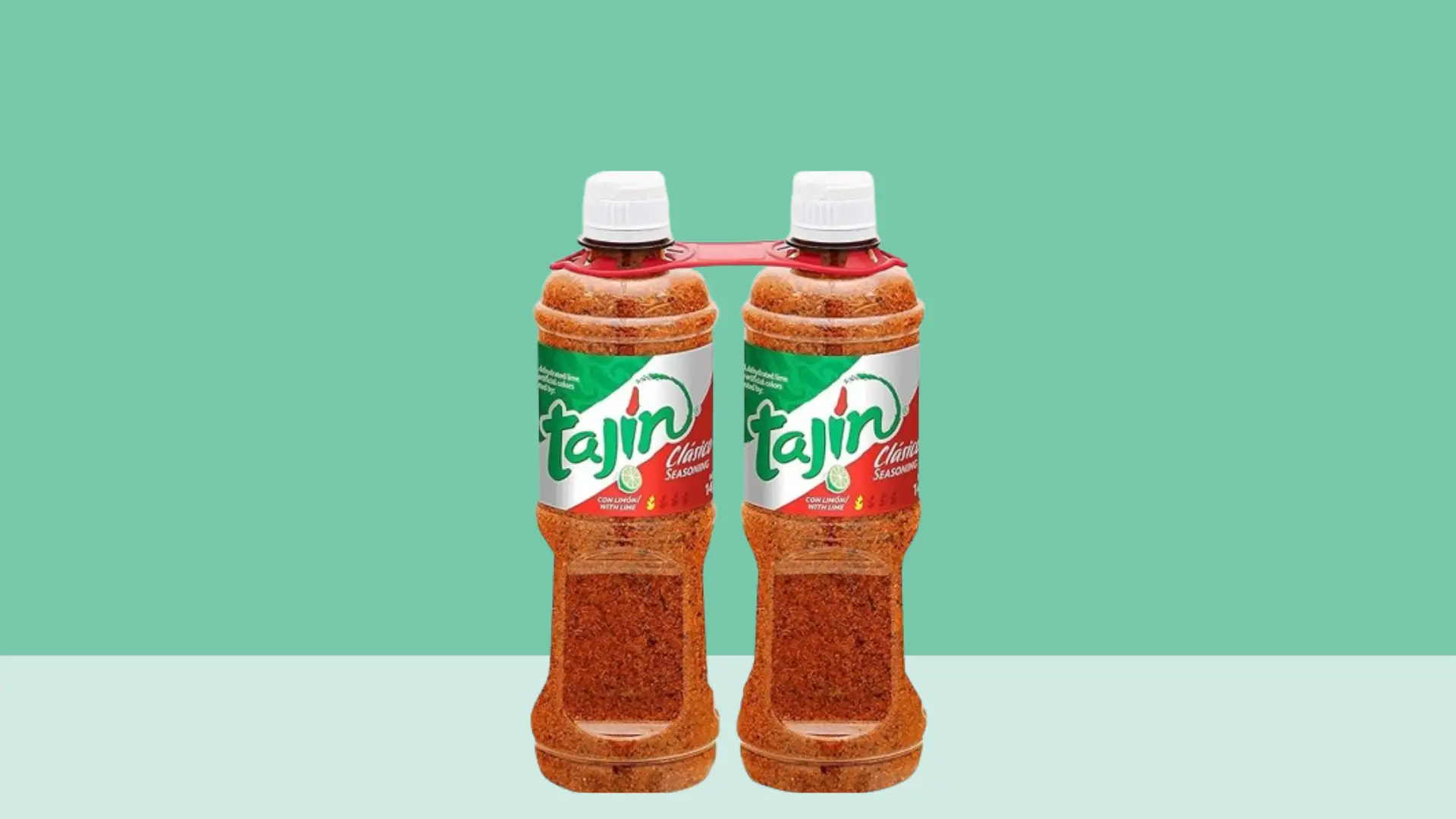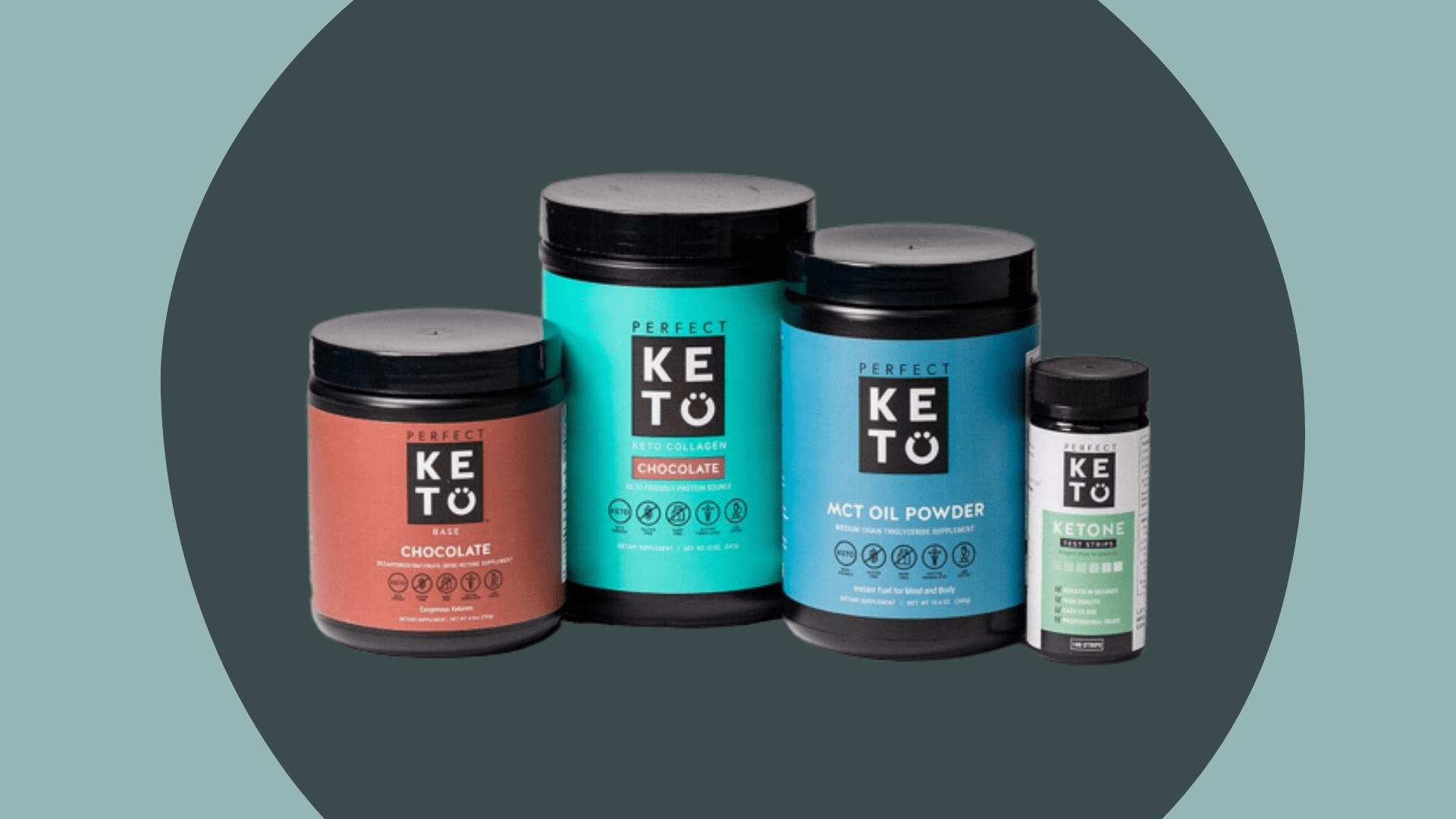Tajin is a way of life; this seasoning powder is becoming increasingly popular, and the taste will tell you why. While it was invented in 1985 and debuted in America in 1993, it has skyrocketed in popularity since 2012 and is now available in 35 countries.
Tajin combines two of Mexican cuisine’s signature flavors: chili, spice, and citrus. And you’ve probably seen it before, even if you don’t know what it is – that red seasoning all over the cut pieces of fresh fruit. Is it spicy? Is it sweet?
And besides this, so what’s the truth? Read on to learn more about the nutritional profile of Tajin, is it bad for you? As well as some of the health risks and benefits of Tajin.
What You Will Learn?
Without any further ado, let’s dive right in.
What is Tajin?
Tajin is a popular Mexican seasoning that is made using a flavorful blend of ingredients such as mild chili, peppers, lime, and sea salt. The name “Tajin” comes from Tajin River, Veracruz, Mexico.
It is because the chili peppers that are used in the original species were grown in that place. Tajin was created in the year 1985 by Horacio Fernández who was a condiment producer predominantly with the use of chili pepper, lime, and salt.
The versatility of its use, incredible flavor profile, and made from natural ingredients make Tajin special and popular.
Tajin is made using 100% natural ingredients and it does not contain any kind of artificial flavors, preservatives, and colors. Thus, it can be a great way to add flavor to your food.
The taste of Tajin can be described as tangy, and spicy with a little bit of salty taste. It is best used to enhance the flavors of several types of food.
Is Tajin bad for you?
Tajin isn’t bad for you unless you consume too much of it. Tajin in itself is a healthy seasoning prepared using dehydrated lime juice, ground, and dried red chilis, and sea salt.
Also, it is free of any artificial additives, preservatives, and sugars that can make it not so safe to consume. However, Tajin is high in sodium (190 mg) which is 8% of your daily sodium intake.
This can be a concern for people having high blood pressure or heart disease who need to limit their sodium intake.
But, to tackle this issue, Tajin has a low sodium variety containing 37% less sodium than the generic Tajin Clasico seasoning. People who have health risks from consuming too much sodium can consider this variety.
Thus, to sum up. Tajin is not bad for you since it has no calories, added sugar, or artificial ingredients that might make it potentially harmful. It can be a tasty and healthy addition to your food when used in moderation.
Is Tajin fruit seasoning bad for you?
Just like Tajin generic classical seasoning, tajin fruit seasoning has the same ingredients as Mild Chili Peppers, Lime, and Sea Salt. So, is tajin fruit seasoning bad?
The answer is no, it is also safe and healthy for consumption, except that each serving of Tajin fruit seasoning also has 190 mg of sodium.
Besides the original ingredients, some Tajin fruit seasonings can have other spices like Oregano and Garlic giving it a unique flavor.
Also, you can opt for a low-sodium version of Tajin fruit seasoning and watch for its added sugar content if you want to play more safely.
Thus, Tajin fruit seasoning isn’t bad for you if consumed moderately and taken effective measures such as checking its nutrition label for added sugar.
Ingredients Nutritional information of Tajin
Tajin is made using a flavor blend of three key ingredients namely dehydrated lime, chili peppers, sea salts, and in some varieties anti-caking agents. It is best known for giving your food a spicy, tangy, and salty flavor to make it more enjoyable to eat.
Ingredients Information
Tajin has the following key ingredients in it:
- Dried And Grounded Red Chilli
This ingredient of Tajin provides the needed heat and spiciness when added to the food.
- Dehydrated Lime
You might have felt a tangy taste when using tajin seasoning with any food of your choice. This tanginess is mainly due to the use of lime. It also makes Tajin slightly acidic.
- Sea Salt
Tajin also has a saltiness. It helps enhance the flavor of it. Also, sea salt is the main reason why Tajin is high in sodium.
- Anti-Caking Agent
This ingredient is used for preserving Tajin for a longer time and also helps prevent its clumping.
Nutritional Information
The best part about Tajin flavor seasoning is they do not have any calories, fat, carbs, or added sugar making it safe and healthy for consumption.
Here is a complete nutrition profile of Tajin:
| Nutrient | Amount per ¼ tbsp |
| Calories | 0 |
| Total Fat | 0g |
| Trans Fat | 0g |
| Saturated Fat | 0g |
| Sodium | 190 mg (8% DV) |
| Cholesterol | 0 mg |
| Total Carbohydrates | 0g |
| Dietary Fiber | 0g |
| Protein | 0g |
| Sugar | 0g |
The nutritional profile of Tajin is well-balanced and doesn’t have any nutrients except for sodium. Tajin is added in small amounts to add flavor to the food.
Besides, it is sugar and gluten-free, making it healthy for the majority of the population including those with dietary restrictions.
Benefits of Tajin
Due to its impressive nutrient profile, tajin has been linked to many health benefits.
Anti-inflammatory benefits
Chili pepper, which is the main ingredient in tajin, can reduce inflammation, and consumption of chili pepper gets its heat from an anti-inflammatory compound called capsicum.
Some research also suggests that capsicum can help with vascular and metabolic health, plus anti-carcinogenic properties.
In a report by American Heart Association Scientific, subjects who consumed Tajin were found to reduce one relative risk of cardiovascular disease mortality rate by 26%.
Supports a healthy immune system
Tajin may help you to support a healthy immune system because it contains a high amount of vitamin C. One teaspoon of tajin contains at least 10% of the daily recommended intake of the essential nutrient vitamin C.
Adding Tajin to your diet also improves skin health and promotes wound healing, and can also be a great way to increase your vitamin C intake as it comes with many health benefits.
Improves digestion and low in-calorie
Tajin is a good source of citric acid and citric acid can help you to stimulate the production of digestive juices, adding enzymes and aiding overall digestion.
Tajin has a low-calorie seasoning option, one teaspoon of Tajin contains only about five calories in it. This helps you to reduce your overall calorie intake and support weight management goals by using it as a replacement or alternative option for high-calorie condiments such as ketchup and mayonnaise.
Additionally, people who are looking to add flavor to their food without increasing extra calories in their diet or food make it an excellent choice.
What are the health risks of Tajin?
Despite the many benefits associated with Tajin, there are some downsides or health risks to consider.
Tajin is high in sodium content, and it contains approximately 190 mg of sodium per teaspoon, which is roughly 8% of the daily recommended daily intake.
And, since it contains more than 20% of the daily recommended intake of sodium per serving, due to such reasons why countries like the United States have a warning label on it.
Therefore, it is important to keep in mind that your intake of sodium can lead to high blood pressure, heart disease, and stroke.
Tajin may also trigger certain health conditions such as acid reflux or irritable bowel syndrome due to its spice content.
It can cause discomfort for your teeth especially if you have sensitive teeth and these results can cause side effects on your teeth such as high levels of acidity is a big red flag and spicy meals can cause discoloration to your teeth on their own.
So, if you suspect that you may have sensitive teeth or in general an allergy to Tajin, you better avoid eating or taking Tajini.
Is Tajin bad or good for you? Verdict
Tajin isn’t any bad for you until you consume it in moderation. It could be a great addition to your food giving it a spicy, tangy, and flavorful taste.
The only concern with Tajin that we found was it has a high sodium content, i.e. 190 mg of Sodium per quarter of a tablespoon. For those having high blood pressure and heart health issues, this seasoning might not be the best.
However, to tackle this, Tajin has low-sodium varieties that you can use without any worry.
Whether it is Tajin or any other seasoning, moderation is the key. Excess of any seasoning might bring health risks you do not usually expect.
Tajin is more than just a condiment, its vibrant tang and heat are a perfect match for your tastebuds to feel good. There is no specific reason to avoid it if you enjoy it.


